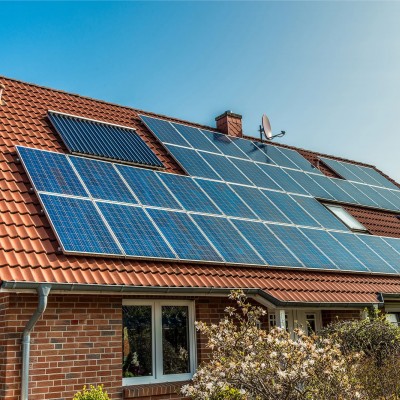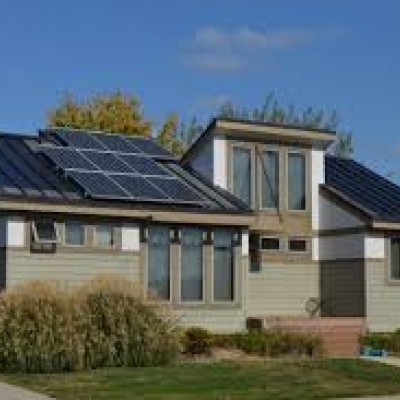Retail Net Metering Is Good for Us All
Retail net metering is the single most important driver behind anyone’s decision – yours, mine, a local business’s, or town’s – as to whether it makes financial sense to install solar panels. And it’s pretty simple: with retail net metering, installing solar makes financial sense; without it . . . not so much.
Here in Massachusetts, net metering has helped us grow the amount of energy generated by the sun by more than 500% in just the last five years alone – making us a leader in the nation. So why does a recent decision about net metering in Nevada have New Englanders worried about the future of solar power here?
Nevada Turns Its Back on the Sun
What happened in Nevada was a radical shift in policy: First, the state tripled the monthly fee solar-using families and businesses have to pay to “access the grid.” Then it slashed the amount those same families and businesses are paid for supplying their clean, homegrown energy back to the grid – by 75%! In essence, the state eliminated all of the economic incentives for installing solar panels in the first place.
As a result, the solar industry in Nevada crashed almost instantly, taking hundreds of good jobs with it and stifling the potential for one of the country’s sunniest states to harness even more solar power in the future.
The Risk to Solar Power in Massachusetts
Could that happen here? We certainly hope not, but you never know. Cuts to net metering in Massachusetts aren’t out of the question, and, as we speak, the Legislature is working on an omnibus energy bill that is expected to include important provisions that will dictate Massachusetts’ solar future. Among the bills currently in committee is a recent House bill (H.3854) that proposes a draconian, Nevada-like cut in solar reimbursement from about 16 cents per kilowatt-hour to about 4 cents per kilowatt-hour. The Governor’s proposed solar bill was better in this respect, but not by much.
H.3854’s Nevada-style cuts to retail net metering would be a financial disaster for businesses and families across the state, as this recent piece from energy journalist (and Massachusetts resident) Scott Clavenna demonstrates.
Under Massachusetts’ current, nation-leading policies, the Clavenna family was cash-flow positive in year one of using their rooftop solar panels – despite having paid for their average-sized 5.5 kilowatt solar system with a home-improvement loan. And they’re currently on track to fully recover their investment in just three years! But under Nevada-style rules, it would take the Clavenna family 20 years to break even on the same panels after enduring 13 agonizing years of wallet-draining, negative cash flow. Ouch.
Solar Power Benefits All New Englanders
Distributed solar power brings value not just to those who install it, but to us all. Solar provides energy right when we need it most – during the afternoon “peak” when folks return from work and school. And because it does, solar (like energy efficiency) reduces the need to build and run “peaker” plants which, because they run so infrequently and stop and start a lot, are the most expensive and the dirtiest on the grid. So solar anywhere on the grid – on your roof or on mine – lowers the short- and long-term price of electricity for everyone, across the state and across New England.
But wait, there’s more: by generating power right where it’s needed, solar lowers the shared cost – for everyone (check the “delivery services” section of your bill!) – of maintaining the grid’s wires and transformers. And of course, solar doesn’t pollute . . . at all. That means we get electricity without pollution (or greenhouse gas emissions!) that also displaces, one-for-one, dirty, climate-warming power from plants that would otherwise have to be turned on. Win – win – win!
There is no good reason for Massachusetts – or any state (that means you, New Hampshire and Maine!) – to repeat Nevada’s mistake. Retail net metering is fair (look for another post soon with more details on that) and it works. It’s a great investment in our homes, on average adding $15,000 in resale value according to this Lawrence Berkeley National Lab study!) – and it’s a great investment in our future.
Help us fight for our clean energy future!
Click here to send an email to the Speaker of the House, Rep. Robert DeLeo, telling him to!
This blog post originally appeared on the Conservation Law Foundation's website.


